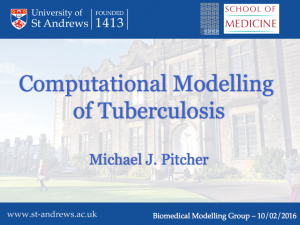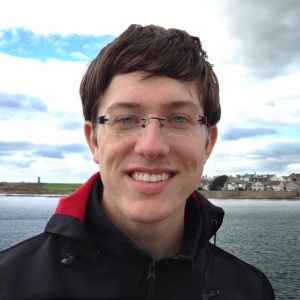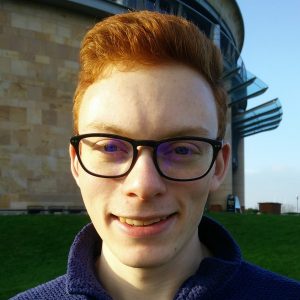The School of Computer Science welcomes Lilian Edwards, Professor of Internet Law at the University of Strathclyde.
Abstract:
There is considerable current concern about the decisions made wholly or partly by algorithms in our digital “big data society”: decisions which now include –
- hiring, promoting and firing in the employment arena
- profiling for surveillance by law enforcement as well as by private companies for tracking and marketing
- dynamic alteration of pricing and access to goods
- assessment of worth for admission to school, college or professions
- health interventions and welfare distributions
- access to news and political comment on social media
And many more.
This talk will discuss the underlying problems around algorithmic governance, including inter alia discrimination, social sorting, lack of transparency, restriction of human agency, acontextuality and other possibilities for error, which have received a great deal of publicity lately; and then more unusually, starts to conjecture what legal solutions may be available in the UK and EU to complement technological and other governance solutions.
Some attention has been attracted by an alleged new “right to an explanation” in the General Data Protection Regulation, art 13, which is in fact not new but has existed in the DPD since 19952. The problems with the right are twofold, one legal, one practical. First, there has always been a carve out from the right for the protection of trade secrets and intellectual property. This probably explains the absolute history of lack of use of this right throughout the EU. Recital 63 of the GDPR does however now counsel that this should not justify “a refusal to provide all information to the data subject” [emphasis added]. A second even more difficult obstacle is simply that no-one really knows how to present what goes on in the innards of a modern big data machine learning algorithm, which largely runs on correlation rather than causation, to non-experts.
While the latter may be seen as mainly a technological problem, a number of key legal issues have not yet really been ventilated. Are legal remedies concerning algorithmic transparency really best found in data protection law? Is transparency a useful remedy at all given the historic failure of notice and choice in privacy? Are individualistic legal remedies suitable for problems causing harms to society as a whole rather than noticeable harms to discrete individuals (another problem of which privacy scholars already have much experience?) Can better models for remedies be drawn from media, competition, employment or environmental law? Does the problem in the end fall so awkwardly between the stools of technological fixes and policy concern that neither camp really has the expertise or ability to produce solutions?
Bio:
Lilian Edwards is a leading academic in the field of Internet law. She has taught information technology law, e-commerce law, and Internet law at undergraduate and postgraduate level since 1996 and been involved with law and artificial intelligence since 1985. Her current research interests, while broad, revolve around the topics of online privacy, intermediary liability, cybercrime, Internet pornography, digital assets and digital copyright enforcement.
She worked at Strathclyde University from 1986–1988 and Edinburgh University from 1989 to 2006. She became Chair of Internet Law at the University of Southampton from 2006–2008, and then Professor of Internet Law at the University of Sheffield until late 2010, when she returned to Scotland to become Professor of E-Governance at Strathclyde University,while retaining close links with the renamed SCRIPT (AHRC Centre) at Edinburgh. Since 2011, she has been Chair of E-Governance at Strathclyde University.
She has co-edited (with Charlotte Waelde) three editions of a textbook, Law and the Internet; the third edition appeared in 2009.She won the Barbara Wellberry Memorial Prize in 2004 for work on online privacy. A sole edited collection of her essays, The New Legal Framework for E-Commerce in Europe, was published in 2005. She is Associate Director, and was co-founder, of the Arts and Humanities Research Council (AHRC) Centre for IP and Technology Law (now SCRIPT). Edwards has consulted inter alia for Google, Symantec, McAfee, the EU Commission, the OECD, and WIPO. Edwards co-chairs GikII, a annual series of international workshops on the intersections between law, technology and popular culture.
Since 2012, Edwards has been Deputy Director of CREATe, the Centre for Creativity, Regulation, Enterprise and Technology, a £5m Research Councils UK research centre about copyright and business models. She is also a frequent speaker in the media and has been invited to lecture in many universities in Europe, Asia, America, Australasia and most recently, South Africa.
Event details
- When: 17th March 2017 14:00 - 15:00
- Where: Cole 1.33b
- Format: Seminar
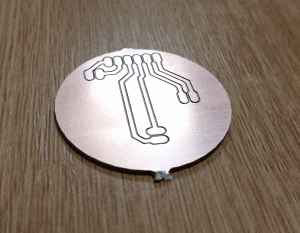 Bare Circular Engraved PCB
Bare Circular Engraved PCB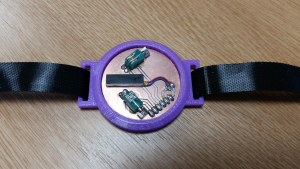 Haptic Wristband and Haptic Transducers
Haptic Wristband and Haptic Transducers

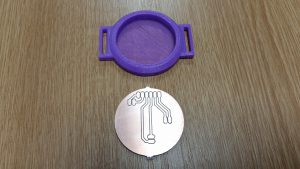 Blank PCB and 3D Printed Case
Blank PCB and 3D Printed Case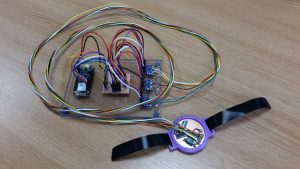 Haptic Feedback Breadboard Assembly
Haptic Feedback Breadboard Assembly